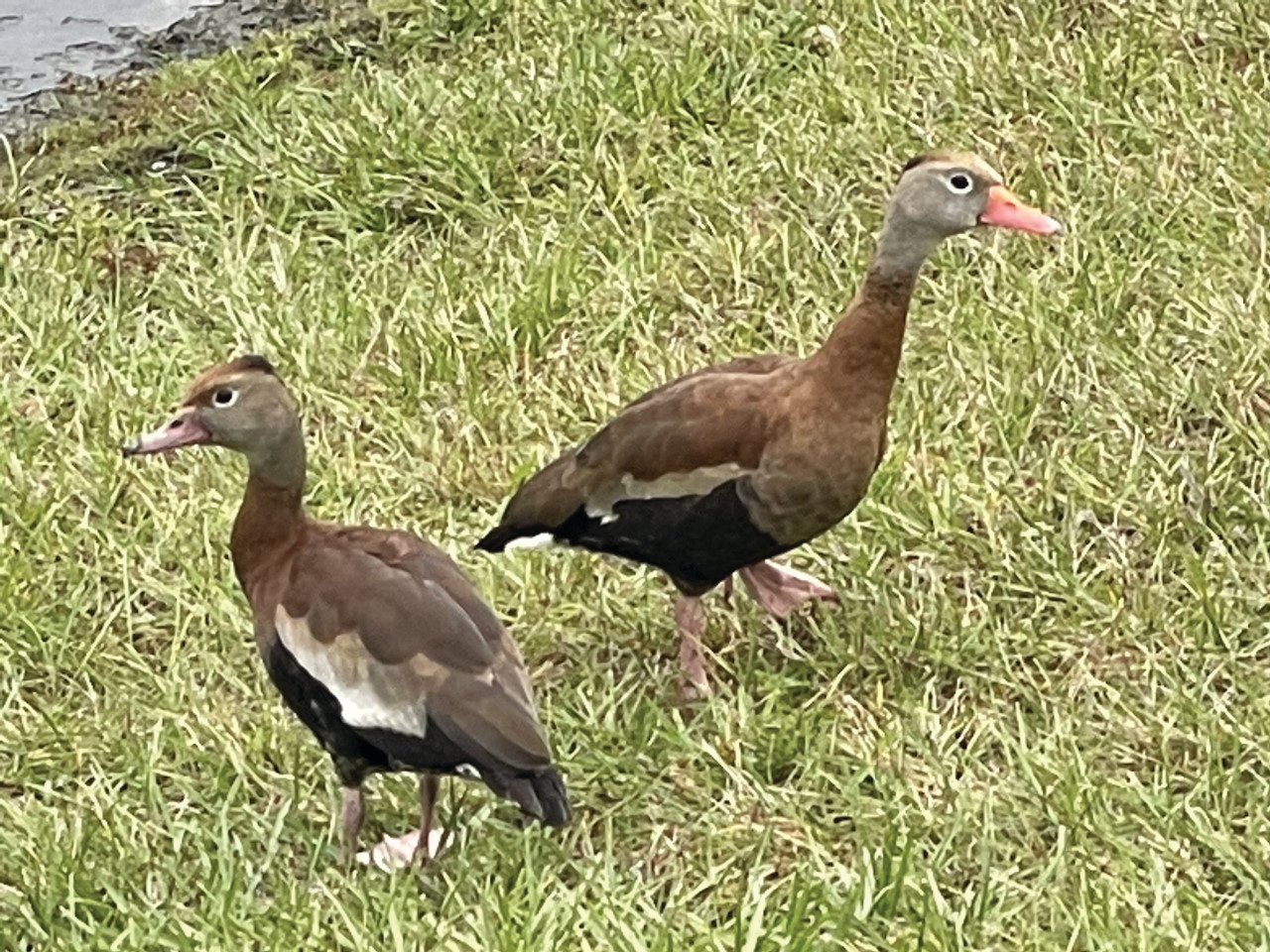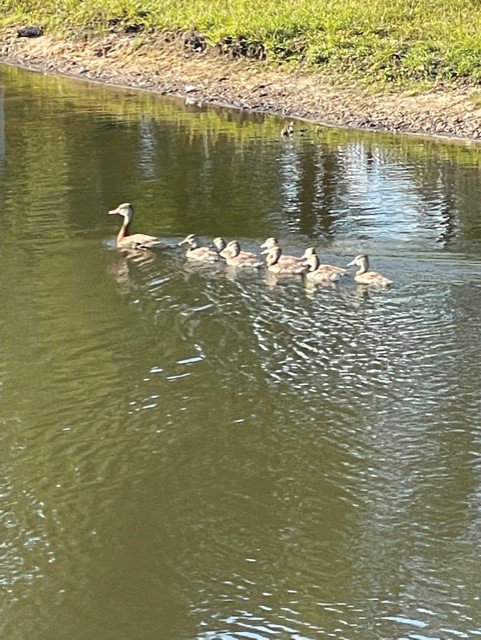Black-Bellied Whistling Ducks act like geese
ORANGE PARK – In the past two years I have had the enjoyment of watching these migrating ducks roam the edges in my backyard pond, which is considered as one of their habitats along with wooded creek banks and rivers. While their normal diet is aquatic plants, grasses, snails and spiders, they also perch on my rail fence and peck the bird feeders in order to knock out the corn, which they rapidly consume.
These ducks usually arrive in early May. They are extremely sociable waterfowl and form in large flocks. They are very noisy ducks and really do have a whistle to their call. They do seem to enjoy communicating. Some mornings they will come flying in with 20 to 30 in the flock. They will fly out for the night to perch and rest in trees, and then return the next day. They seem to do well around developments that include ponds and other water features. They also seem to have little fear of humans.
The male and female look alike (similar in size and color), and they often partner for life. Both parents take care of their offspring, which can be up to 18 ducklings, and I have counted 16 in one brood
The Florida Fish and Wildlife Conservation Commission reports that whistlers are expanding within the Sunshine state. Most are year-round residents of South Florida. They will depart our area in North Florida around early November and migrate southward. Note: As migration called them last year, I counted 65 of these ducks on the pond on a November day, by nightfall there were none.
As with all wetland birds, loss of habitat and poor water quality are the main threat to their existence.










